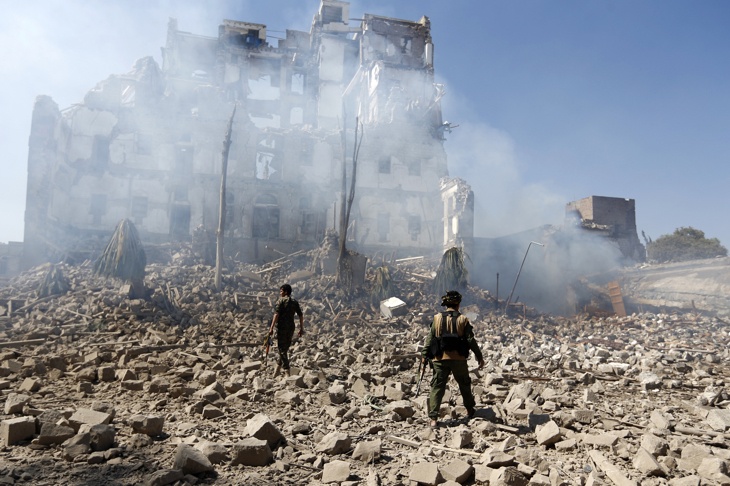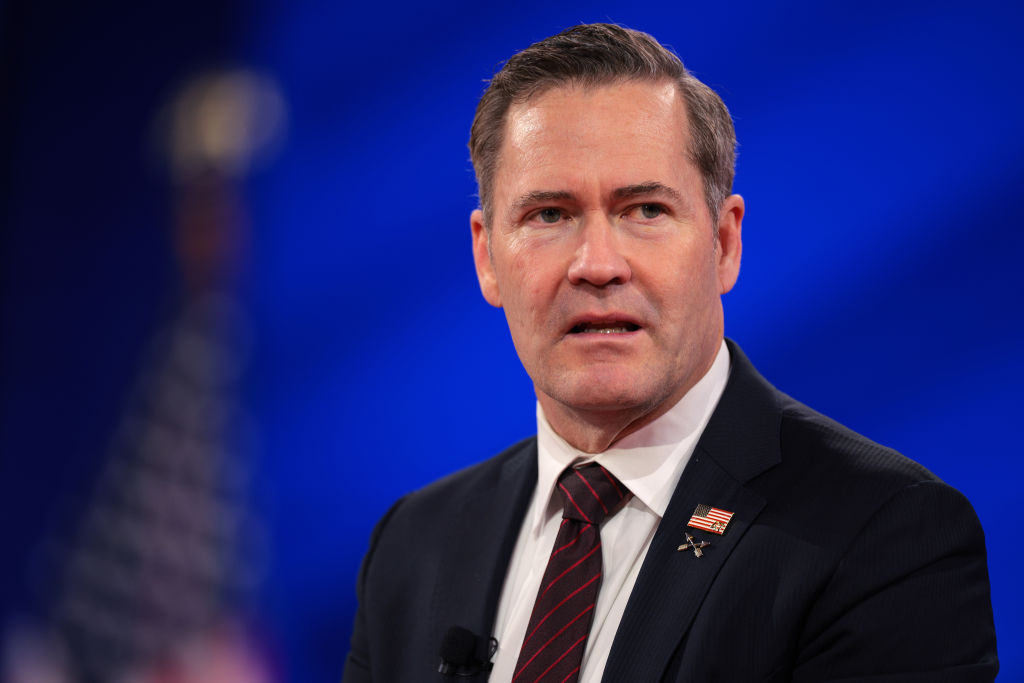Only very rarely in today’s Washington, D.C. is a cause so strong that it brings together America’s most famous progressive with one of the country’s most ideological conservatives. But the nasty, bloody, and intractable proxy war in Yemen – and the U.S. military’s involvement in it – is one of those causes.
Yesterday afternoon, Vermont Senator Bernie Sanders and Utah Senator Mike Lee held a press conference on Capitol Hill to unveil the introduction of a resolution that, if passed by both houses of Congress, would compel a withdrawal of all U.S. military assets from the Saudi-led campaign against the Houthi rebels. The Sanders-Lee move is well timed: it comes only a few days before the arrival in Washington of Saudi Crown Prince Mohammed bin Salman, who is in a world tour to promote himself as the enlightened face of Saudi Arabia — never mind the massacred Yemenis. The measure should help remind him and the world that in America, at least, executive military power is subject to legislative approval. Or at least it should be.
Writing in the Washington Post, senators Sanders and Lee – joined by Connecticut Sen. Chris Murphy – expanded upon the reasons they were spending time debating a Middle Eastern conflict few Americans have thought much about. ‘The most serious duty we have as U.S. senators is deciding whether and when to send our young women and men into harm’s way to defend our country,’ the senators explained. ‘It is time for Congress to play its constitutionally mandated oversight role with regard to war.’
Therein lies the heart of the matter: despite America’s participation in the war against the Houthis, Congress has neither debates nor granted President Donald Trump with the statutory authority to do so. Yet later this month, U.S. pilots will be entering their fourth year assisting Saudi Arabia’s combat aircraft to bomb Houthi positions. Under he radar, the U.S. has been engaging in war-time hostilities without the explicit approval of America’s elected representatives in Congress, which is unlawful and unconstitutional.
The constitutional question is only a part of the discussion. The other is that Riyadh three-year bombing campaign, and Washington’s logistical of it, is terrible policy. At least 10,000 people have been killed and thousands of additional homes, businesses, and livelihoods have been ruined for nothing at all. The frontlines are fixed, the Houthis remain in control of Sana’a and most of Western Yemen’s population centers, and the legitimate Yemeni government is no closer to restoring its authority as it was when ministers were forced into exile in Saudi Arabia. If Riyadh is hoping the Houthis will get tired of the airstrikes, capitulate, withdraw back to the highlands, and return the keys to President Abd Rabbu Mansour Hadi, then the House of Saud has been sleeping over the last three years.
Yemen was already the Arab world’s poorest country before the war began. But the conflict has made many of the country’s citizens long for even those hard times. Yemen has ceased to be a functioning state; indeed, whatever infrastructure it had is now effectively wiped out. 18 million of Yemen’s 29 million people are food insecure; nearly 500,000 children under the age of five are dangerously close to losing their lives due to hunger; and millions of people could very well experience famine if the combatants continue to obstruct or divert food deliveries. U.N. officials have gotten used to calling Yemen the world’s worst man-made disaster.
The U.S. may not be dropping the bombs, but they are fueling up the planes doing the bombing and selling some of the munitions that are being dropped from above. Saudi Arabia’s war strategy is not working. Some have likened Riyadh’s military adventure in Yemen as Saudi Arabia’s Vietnam War – a bumbling, strategically incoherent affair where a win is determined by how many enemy fighters are killed.
Iran, Saudi Arabia, the UAE, the Houthis, Al-Qaeda, the Islamic State, secessionists in the south, vestiges of the old Saleh regime. and Sunni tribesmen (some pro-government, others not) are all duking it out for an ill-defined victory. Outside of general platitudes about preventing Iranian expansionism, the U.S. political establishment dating back as far as the Barack Obama years has never explained why the United States is involved in this mess at all – nor what American interests are served in acting as Saudi Arabia’s enablers in a conflict that has nothing to do with Al-Qaeda.
The Sanders-Lee resolution may not pass, but the least it can do is force the Trump administration to offer the American people that explanation.

























